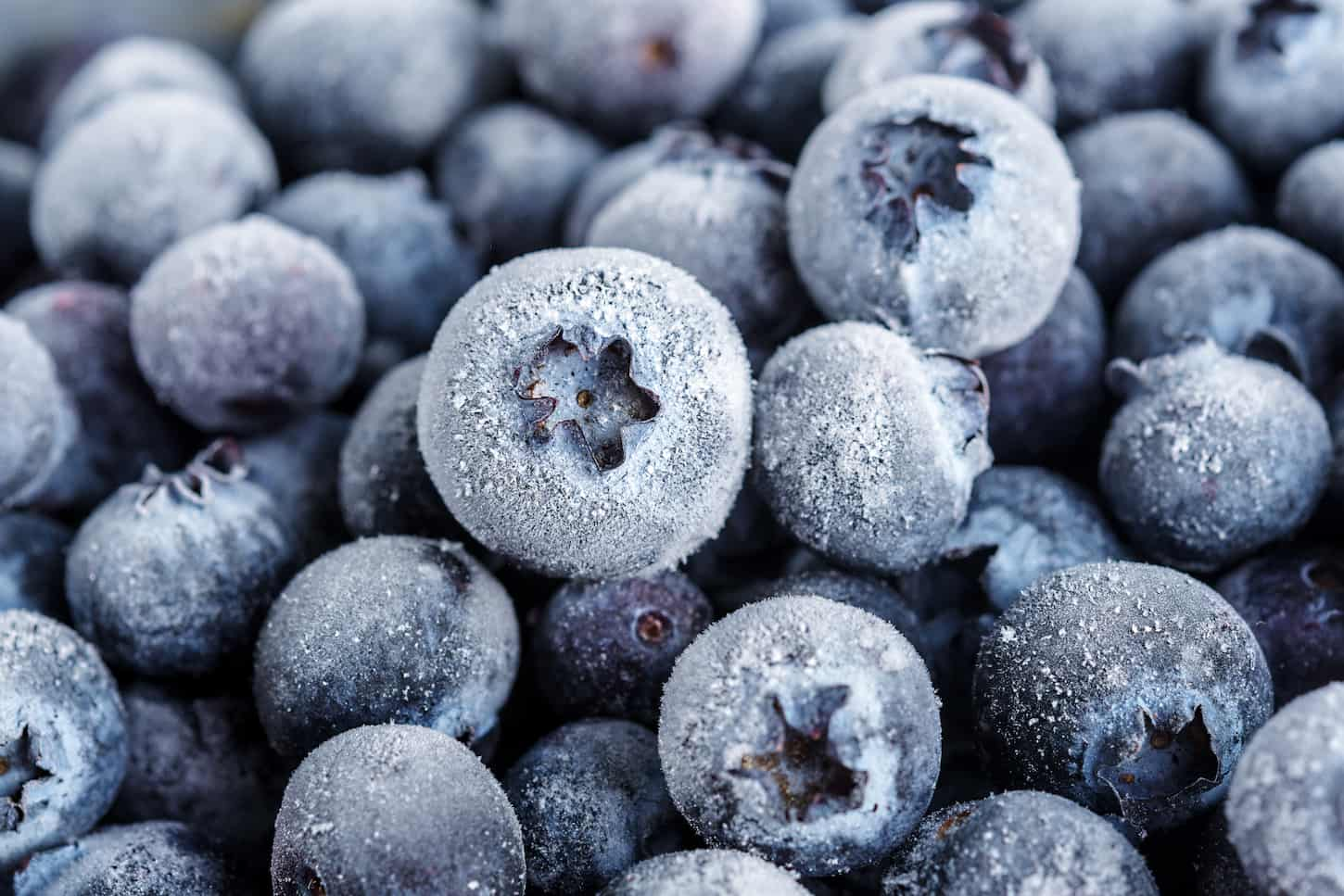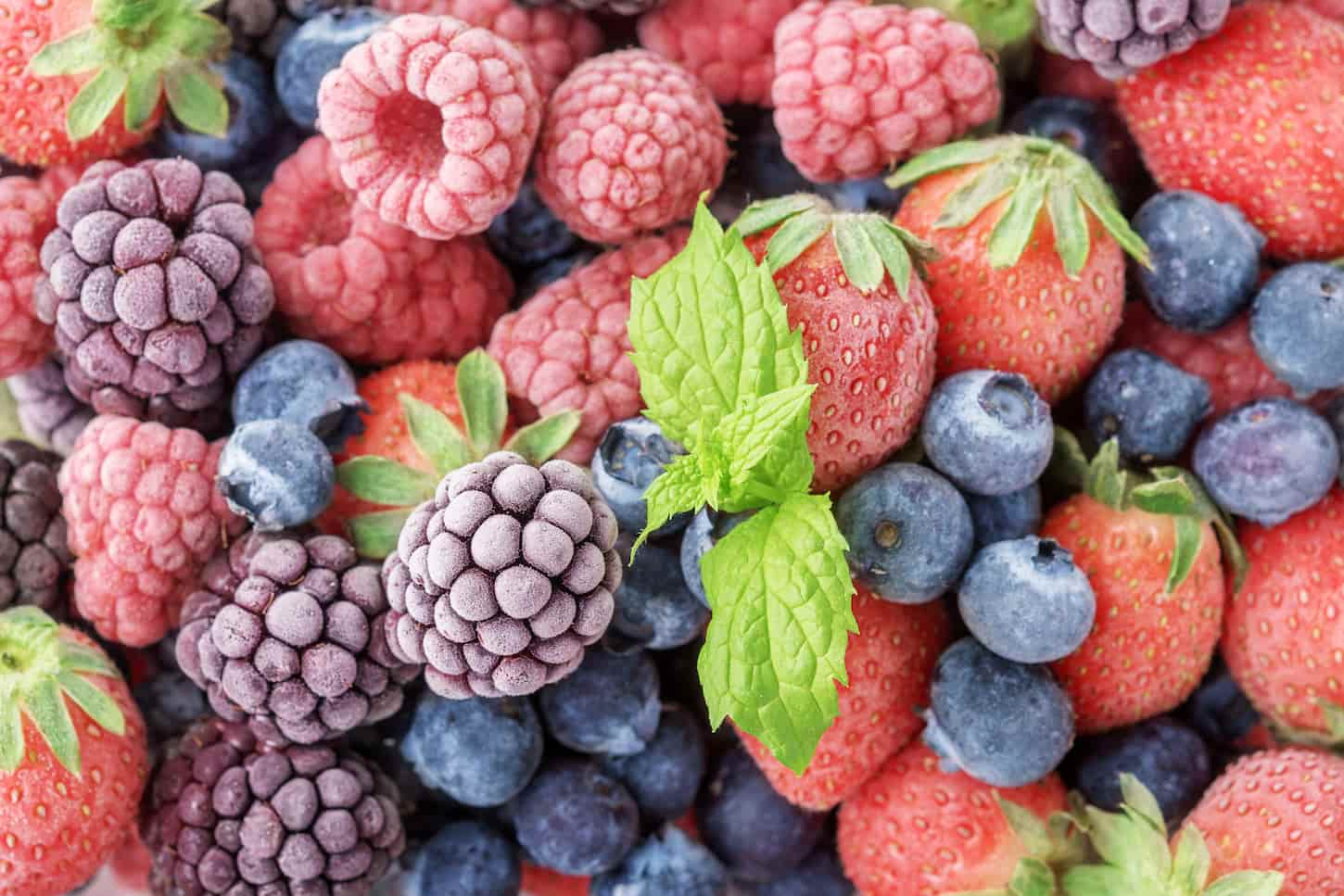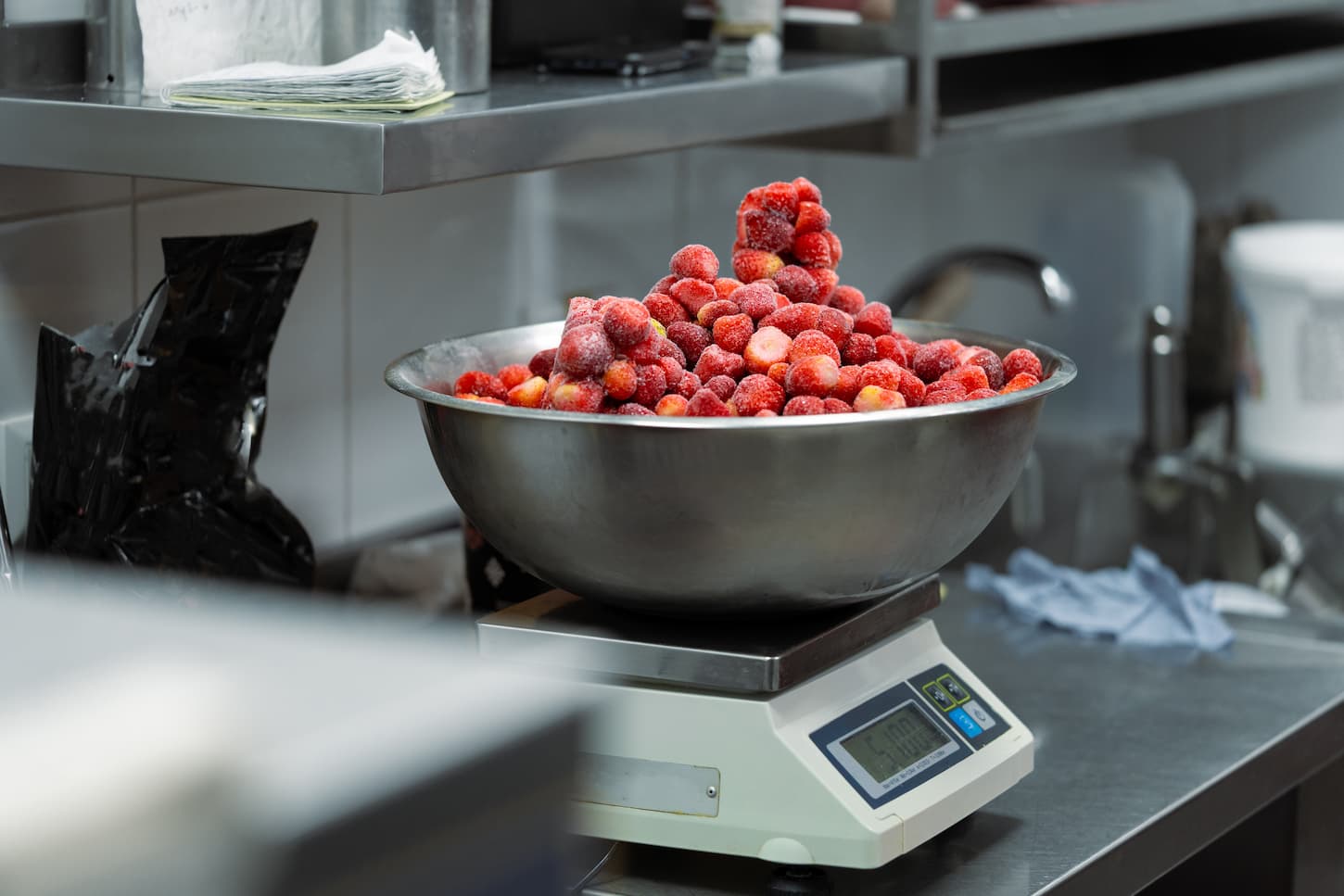Freezing berries is the simplest way of preserving them in the long term, but fruit can often become brown because of oxidation or lose its firmness and will turn mushy. Because of this, many people wonder what’s the right way to freeze berries.
To freeze berries, do the following:
- Clean and prepare the berries.
- Prevent future browning with one of several fruit preserver options.
- Put the prepared berries in a container (preferably an airtight one).
- Store the container in the freezer.
There’s a bit more to the story, though. Read on to learn how to prevent berries from losing texture, what to do with frozen and thawed berries, and the best storage containers.

How to Freeze Berries for Storage
Freezing berries is the simplest way of long-term storage, and it requires very little participation on our part. All that is needed are some good storage bags or containers.
Preparation
To freeze berries, we’ll need the following:
- A freezer
- A plastic container
- Vinegar
- Fruit preserver (to prevent browning)
- Water
Step 1 – Clean and prepare the berries
Before freezing berries, give them a vinegar bath – this is an effective way of killing all mold on the berries.
Just combine three cups of water and one cup of vinegar and soak the berries for half a minute. After that, rinse them until they’re clean from vinegar.
Water alone won’t kill mold, so washing them with only water has no effect.
Step 2 – Prevent future browning
After rinsing the berries, give them a bath in some sort of fruit preserver (powdered fruit preserver, acetic acid, citric acid, or ascorbic acid) to prevent them from browning.
Note: I know that vinegar is diluted acetic acid. So if you do the first vinegar bath, you can sometimes get away without the second bath. However, I try not to skip the second bath if I’m deep-freezing fruit. I’m only likely to skip it if I’m freeze-drying the berries.
Step 3 – Put them in a container
There should be an inch of space between the top layer of berries and the container lid. Any container will do – it doesn’t have to be airtight, but it’s better to avoid freezer burn.
If your container can be vacuum sealed, that may not be a bad idea. I’ve never done it, as the food we store in the freezer typically gets used fast enough that we save the vacuum-sealing for freeze-dried foods.
Step 4 – Store the berries in the freezer
That’s it! Put the berries in the freezer and set the temperature below freezing (32°F) – ideally below 0°F for deep-freeze storage. The berries will stay edible for a long time.

Can All Kinds of Berries Be Frozen?
Almost all berries can be frozen. Many berries thaw well and are usable as if they hadn’t been frozen. Some berries, such as strawberries and raspberries, do not thaw well after freezing and become mushy once they are thawed. Slow thaws can help prevent some of the issues, but not all.
This isn’t a problem if we’re planning to make milkshakes with them, but the loose, mushy texture isn’t enjoyable when we eat them. At least it’s not for me! However, frozen strawberries work great for jams, preserves, and syrups.
Raspberries suffer from a similar problem – they lose their texture once they thaw (and they lose the texture quickly when picked – even if kept in the fridge). However, the damage isn’t as obvious with them as it is with strawberries.
If you’re curious about other foods, look at this list of foods that don’t freeze well by the National Center for Home Food Preservation.
Don’t want to deal with mushy, thawed berries? Freeze-dry them instead. Here’s how: Freeze Drying Berries: How-to and FAQs Answered!
How to Store Berries in a Freezer
Berries can be stored in almost any container in a freezer as long as they can be sealed. If the temperature is 0°F or lower, the berries will freeze, and it will prevent them from spoiling.
Storing berries according to the steps described in the previous section is easy, but many people wonder about the freezer and container conditions.
Not sure if you want to use glass in the freezer for your berries? I get it. I wrote a whole article addressing how safe glass can be in the freezer when you use it right. Read it here: Can You Freeze Food in Pyrex? Here’s the Truth!
What is the best container for storing berries in a freezer?
Container materials do not matter when storing fruit; glass, plastic, or other materials can be used. The most important thing is that the container is not damaged or leaking. All containers should be airtight.
We can use both plastic and glass containers, but be careful when using glass. Glass can break (or at least crack) if the temperature gets extremely low; -40° Celsius is the temperature at which glass cracks on its own.
Pyrex is a safe glass storage container, among others. For more on storing food in glass in the freezer, click here to read our article.
But even if the temperature is higher than that, glass can become extremely sensitive, and just squeezing it too hard can break it.
If a freezer is at 0°F or a temperature not much lower than that, glass containers will be just fine. Just ensure not to put them in boiling water to quickly thaw the berries (sudden temperature changes can also cause cracks).
Airtight containers are better because they help prevent the freezer from burning your food.
How Long Do Berries Last in the Freezer?
Berries can stay in a freezer for approximately twelve months without developing freezer burn if stored properly. The exact timeline depends on the freshness of the berries at the time of freezing (the fresher, the better), the container, and the freezer’s temperature.
In most cases, berries can last up to 12 months in the freezer (source).
However, if the conditions are right, we can keep them in the freezer for longer. Just don’t be freaked out if the taste is slightly off or if they develop freezer burn from being in the deep freezer for longer than is recommended.
Can Thawed Berries Be Refrozen?
Once thawed, berries can be frozen again if not used all at once. However, this will greatly affect the texture, and they may be better used in smoothies or sauces rather than as distinguishable pieces of fruit.
If we’re planning on making a smoothie with them, this won’t be a problem.
Why does this happen? The simple explanation is that berries, like all other fruits, are mostly water (one thing we have in common with berries). Once we freeze water, ice crystals within the fruit expand, and the cell walls rupture.
Then, once we thaw the berries, the texture is uncomfortably soft. This doesn’t mean that the berries have gone bad; they’re just not as tasty when eaten raw.
Because of this, freeze the berries as quickly as possible. When we freeze something rapidly, water forms many small ice crystals instead of forming a few large ice crystals. Smaller crystals don’t rupture wall cells as much, so we’re left with a firmer berry.
To do this, set the temperature at the lowest setting possible an hour before freezing the berries. Once frozen (which shouldn’t take long), return the temperature to the normal setting.
Can You Freeze Berries Before Making Them Into Jam?
Berries do not need to be fresh to become jam – this will not affect the taste. Feel free to make jam with frozen berries. I’ve made lots of jam with frozen berries, and there is no noticeable difference in my experience.
Frozen berries make fantastic jams. Want to make some raspberry jam using my recipe? Here you go – Homestead Raspberry Jam Recipe.
Why is moisture bad for freezing fruit?
Moisture is bad for anything in the freezer as it leads to freezer burn – when a drop of water freezes on a berry, it will evaporate if it comes in contact with air. This will cause a freezer burn – a brown, grainy spot, drying the berry and often destroying the taste.
There is packaging made specifically for freezing foods to avoid freezer burn. Freezer burn is far less likely if we prevent air from contacting the berries (source). It shouldn’t happen if we do it right. We can also prevent freezer burns if we freeze completely dry berries.

Do Frozen Berries Lose Nutrients?
They do not – aside from the changes in texture, freezing berries do not have that much of an effect on them. Freezing is possibly the best preservation method, as the food does not lose any nutrients, especially if pretreated.
To ensure we don’t lose any nutrients, we can give the berries the ascorbic acid treatment. This way, they won’t brown at all.
Soak the berries in ascorbic acid according to the instructions on the packaging (ascorbic acid crystals or a similar fruit preservation powder are available in most grocery stores) before rinsing and letting them dry.
Coating the fruit with lemon juice (with or without some extra sugar) will prevent browning fairly well, but not as well as acetic or ascorbic acid.
Note: if you add sugar during the browning-prevention steps, you change the nutritional value. After all, you’re adding sugar!
Key Takeaways and Next Steps
There we have it. We can keep berries for ages without losing texture and color if we treat them properly before we freeze them. It’s best to use airtight containers, and once thawed, berries can be refrozen, but we should still eat them within a year.
If you’d rather be able to store berries for longer than a year or to store them with your shelf-stable food storage, I highly recommend you invest in a freeze dryer and send your berries through a cycle. Freeze-dried berries are amazing and even more flexible than frozen ones.
You can read my complete guide to freeze-drying berries here.
Resources:
Learning from your own experience is important, but learning from others is also smart. These are the sources used in this article and our research to be more informed as homesteaders.
- “Foods That Do Not Freeze Well.” National Center for Home Food Preservation, nchfp.uga.edu/how/freeze/dont_freeze_foods.html.
- Geiger, Marlene. Freezer Burn and Food Safety • AnswerLine • Iowa State University Extension and Outreach. 12 July 2022, blogs.extension.iastate.edu/answerline/2022/07/12/freezer-burn-and-food-safety.
- “The Science of Freezing Foods.” UMN Extension, extension.umn.edu/preserving-and-preparing/science-freezing-foods.
